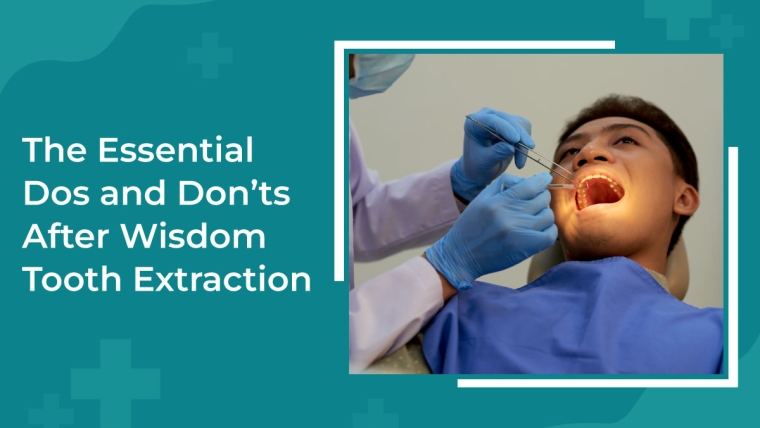Written by: Dr Ekta Khatri – Co- founder, The Func Dent – The Functional Dentistry Center, Bandra
Tooth sensitivity can stop you mid-bite. Cold drinks, hot coffee, or even a deep breath in winter can trigger pain. It’s a common problem, but it doesn’t have to become your routine.
When the protective layer of your teeth wears down or your gum health deteriorates, the nerves underneath become exposed. That’s when normal everyday practices start to hurt.
You don’t need to tolerate that discomfort. The first step is knowing why it happens.
A] Common Causes of Tooth Sensitivity
Tooth sensitivity always points to a deeper cause. You can often trace it back to daily habits, diet, or gum health issues. Here are the most frequent reasons your teeth might be reacting.
1. Brushing Too Hard
Scrubbing your teeth might seem thorough. But too much pressure wears down your enamel. Over time, that exposes the sensitive layer beneath it.
Use a soft-bristled toothbrush. Keep your grip light. Your teeth need cleaning, not sanding.
2. Gum Recession
Your gums protect the roots of your teeth. When they recede, those roots become exposed. That area doesn’t have enamel. It responds sharply to heat, cold, and sweetness.
Recession can happen from gum disease, poor brushing technique, or simply aging. If your teeth feel longer or your gums look uneven, this could be the reason.
3. Cavities or Tooth Decay
When decay reaches the dentin layer, it causes sharp pain. This layer has small channels that connect to your tooth’s nerve.
If you feel a twinge with sweets, heat, or pressure, you could have a cavity. It’s best to have it checked and filled before it gets worse.
4. Cracks and Chips
Small cracks can expose the inner layers of the tooth. You may not notice them right away, but they react to pressure or temperature shifts.
Grinding, chewing ice, or biting hard foods are all common causes. Even a tiny fracture can cause sharp pain if untreated. That often leads to sensitive teeth after filling procedures if the underlying issue isn’t addressed properly.
5. Whitening Products
Bleaching agents in whitening products can increase sensitivity. The effect may last a few days after treatment.
You’re more likely to feel discomfort if your enamel is thin. If whitening strips or gels trigger pain, pause treatment and switch to a sensitive formula.
6. Acidic and Cold Foods
\Citrus fruits, soda, wine, and even tomato-based sauces can erode enamel. Cold items like ice cream or chilled water can trigger nerve pain if the enamel is weak.
You don’t need to cut out these foods. But limiting them and rinsing after meals helps protect your teeth.
B] How to Treat Tooth Sensitivity?
Once you understand the cause, you can choose the right solution. Tooth sensitivity is manageable. Some treatments work at home while others need a visit to a dental expert.
a. Desensitising Toothpaste
This is often the first line of defense. These toothpastes block the pathways to your nerves. You use them just like regular toothpaste.
It may take a few weeks to feel relief. Don’t switch brands too often. Stick with one to let it do its job.
b. Fluoride Applications
Fluoride helps strengthen enamel. It creates a stronger barrier between the surface of your teeth and the nerve endings inside.
You can use fluoride rinses or gels at home. For stronger doses, your dentist can apply a treatment during your appointment.
c. Dental Sealants
Sealants coat the tooth surface and protect exposed areas. They help block pain triggers and prevent further enamel wear.
This is a good option if you have multiple sensitive areas or deep grooves in your molars. If you’re still wondering why my teeth are sensitive, a sealant can often answer that question with real relief.
d. Fillings or Bonding
If you have a cavity or a crack, a filling can restore the tooth structure. Bonding materials can also cover exposed roots or worn spots.
These procedures don’t take long. But they offer lasting protection. This is a common treatment for sensitive teeth pain that delivers fast and lasting results.
e. Advanced Dental Treatment
When the pain persists or worsens, your dentist may suggest more involved care. This could include a gum graft, crown, or root canal. These are used when nerve exposure is severe or when infection is present.
Don’t delay these appointments. The longer you wait, the more complex the treatment becomes. If you’re near Mumbai, a visit to a trusted dental clinic in Bandra can give you access to modern, effective options tailored to your needs.
C] How to Prevent Tooth Sensitivity?
Prevention is easier than repair. Most causes of sensitivity come from habits that you can control. A few adjustments make a big difference.
a. Brush the Right Way
Brush gently and with purpose. Use a soft-bristled brush and aim for two minutes. Focus on cleaning, not scrubbing.
Replace your brush every three months. Worn bristles can scratch the enamel and irritate the gums. If you’ve been too aggressive, you may need abrasion of teeth treatment to correct enamel loss.
b. Choose the Right Toothpaste
Toothpaste made for sensitive teeth has ingredients that shield nerve endings. It helps reduce discomfort and builds a defense over time.
Use it twice a day. Make sure it has fluoride. Avoid pastes with strong abrasives or whitening agents unless your dentist advises otherwise.
c. Limit Acidic Foods and Drinks
Acidic foods wear down enamel faster. If you eat them often, rinse your mouth with water afterward. Wait at least 30 minutes before brushing to give your enamel time to harden.
Using a straw when drinking acidic beverages can also help reduce contact with your teeth.
d. Use a Mouthguard if You Grind
Grinding can wear down teeth and cause cracks. Many people do it in their sleep and don’t even know it.
A custom mouthguard protects your teeth from grinding at night. If you wake up with jaw pain or notice flattened teeth, bring it up with your dentist.
e. Keep Up with Dental Check-Ups
Your dentist can catch early signs of enamel loss or gum problems. A routine cleaning removes plaque before it turns into a deeper issue.
Go at least twice a year, or more if your dentist recommends it. Regular visits are your best defense. Make routine check-ups a part of your calendar. Prevention today saves you from pain tomorrow.
Are You Looking for a Trusted Dentist?
Book your appointment today and take the first step toward better oral health!
Conclusion
Tooth sensitivity doesn’t have to take over your routine. You can find the cause and choose the right fix. Most treatments are simple and start working within days or weeks.
Pay attention to how your teeth react. Use products that protect, not harm. And don’t ignore warning signs. If the pain doesn’t go away, it’s time to call your dentist.
Your teeth work hard every day. They deserve the same care in return.




